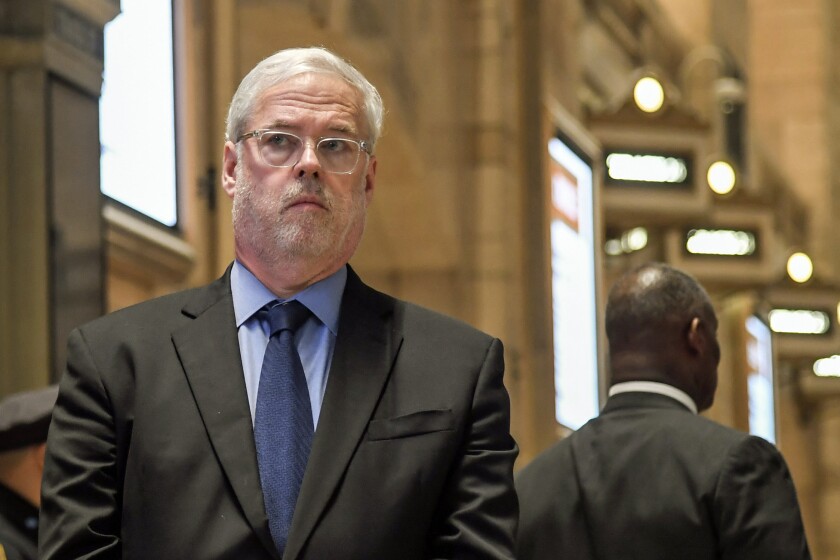New York’s Metropolitan Transportation Authority, the nation’s largest mass-transit system and one of the largest issuers of municipal debt, has asked the federal government for a $4 billion bailout in light of plummeting revenue and ridership drops from the COVID-19 pandemic.
“The stark reality is that as more people stay home following the advice of medical experts, the MTA is now facing fiscal calamity,” Chairman Patrick Foye said in a letter late Tuesday to New York State’s congressional delegation.
The state-run authority operates New York City’s subways and buses, two commuter railroads and several intraborough bridges and tunnels. It is carrying roughly $45 billion of debt, including special credits.
Marc A. Hermann / MTA New York City Transit
According to Foye, the nearly $4 billion equates the MTA’s loses over the year, assuming ridership drops continue, “even without the expected collapse of the more than $6 billion in state and local taxes dedicated to the MTA.”
Based on recent daily reports, said Foye, ridership has dropped about 60% on subways, 90% on Metro-North Railroad and 67% on the Long Island Rail Road, as well as 49% on buses.
He estimated virus-related additional cleaning and disinfecting expenses at $300 million annualized.
“A supplemental formula increase to existing funding sources does not go far enough,” Foye said. “And flexing federal funds currently allocated for capital projects cannot be the solution. Not only does this approach unnecessarily pit our operating costs against needed state of good repair investments to maintain our system, it has the potential to slow the critical growth of the MTA.”
The MTA is not alone among transit operators facing dramatic drops in ridership and tax revenue. The American Public Transportation Association, which represents systems that 90% of public transit riders in the U.S. and Canada use, is asking Congress for nearly $13 billion to help pay for system cleaning and to help offset lost fares and sales tax revenue.
New York MTA late last year received state approval for its $51.5 billion capital program from 2020 through 2024. The package includes dedicated revenue streams through Manhattan congestion pricing and a variety of state taxes; authority officials at a recent finance committee meeting said its debt over the next few years could spike to nearly $50 billion.
Gov. Nelson Rockefeller in 1968 created the authority to consolidate public ownership and operation of its systems.

